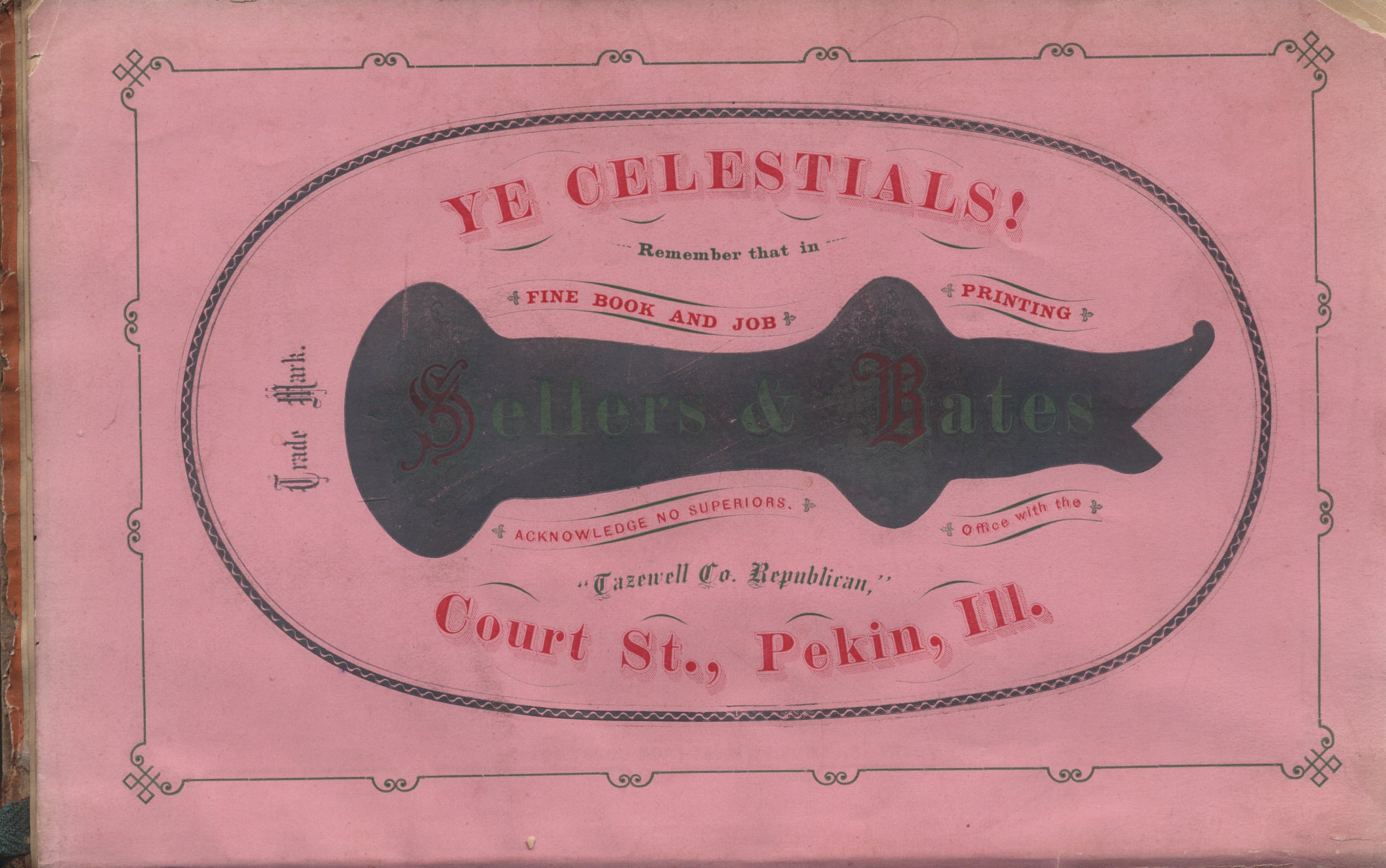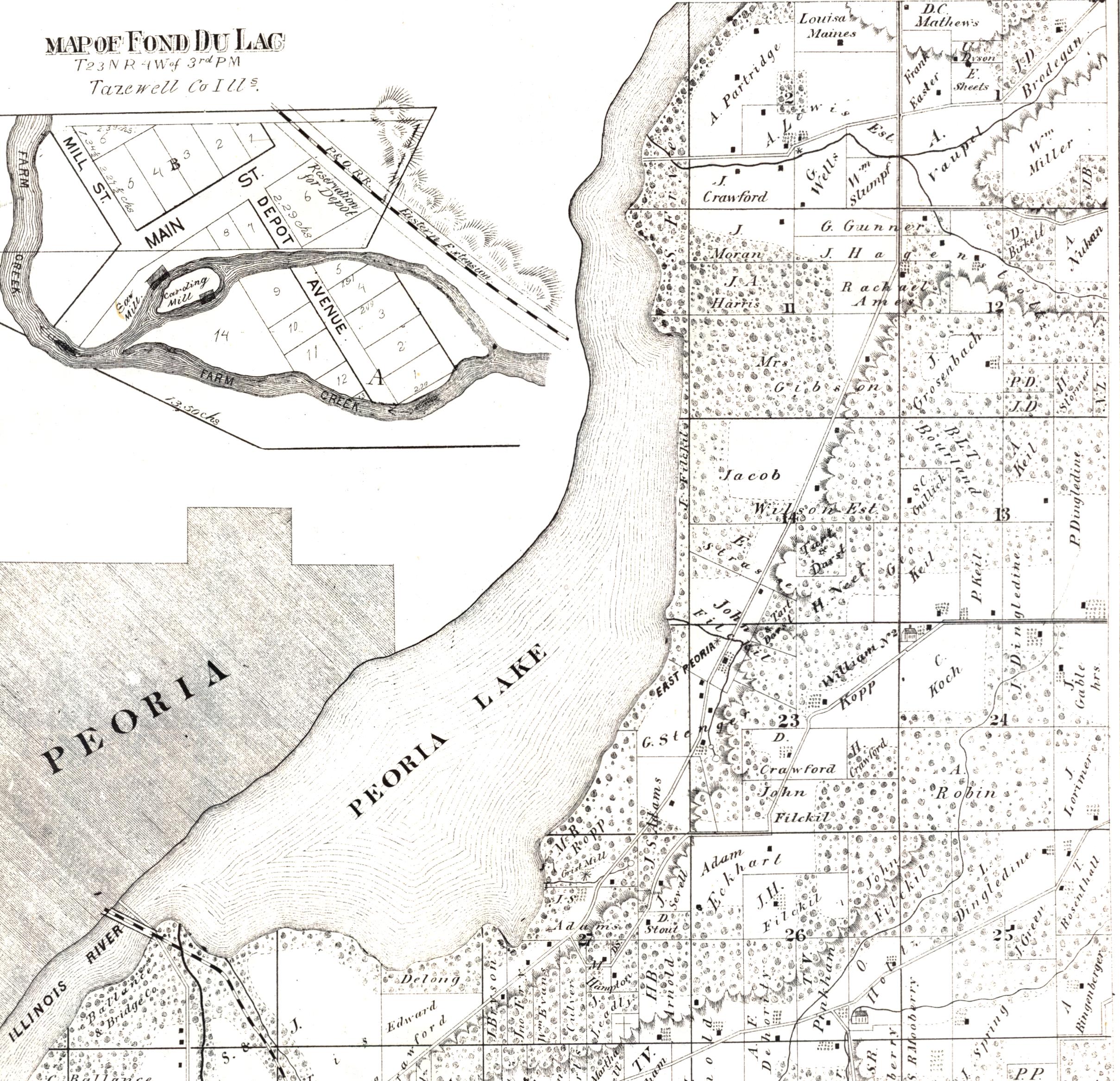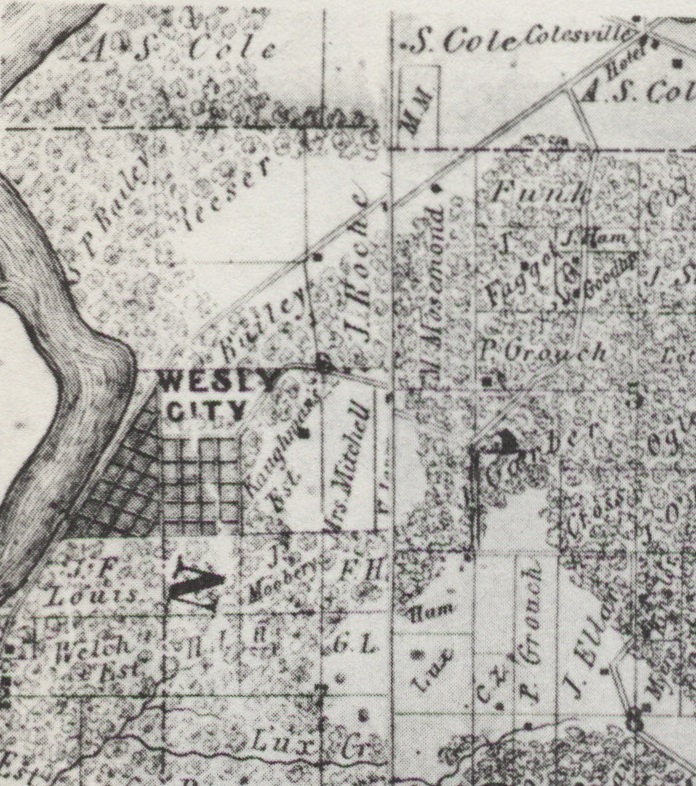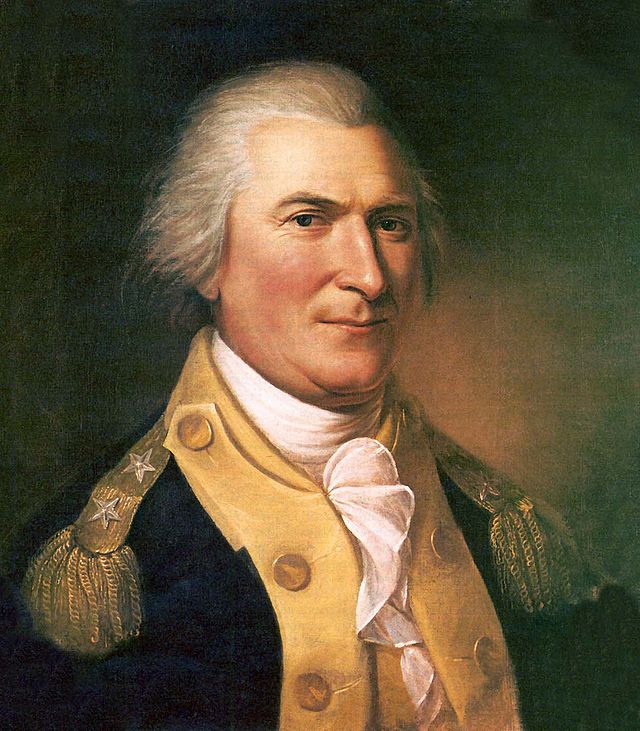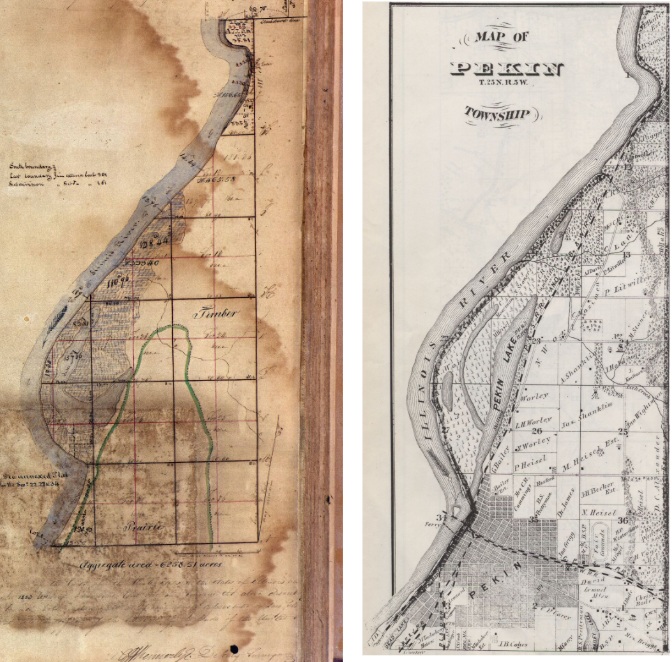This is a reprint of a “From the Local History Room” column that first appeared in July 2012 before the launch of this weblog.
The foundation of Pekin’s historical record was laid in 1870, with the publication of the Sellers & Bates Pekin City Directory. As noted more than once in this column, included in that directory was a “History of Pekin, from its earliest settlement to the present time.”
The 1870 directory billed itself as “the first history and directory of the city.” The conjunction “and” is important – it was not the first city directory (that was the 1861 Roots directory), but it does contain the first published history of Pekin. If not for the Sellers & Bates directory, our knowledge of Pekin’s early history would be greatly impoverished.
But just who were “Sellers & Bates, Printers,” to whom researchers into our local history owe such a great debt? We first answered the “Bates” part of that question in the March 17, 2012 Pekin Daily Times, in the column, “William H. Bates of Pekin, ‘the historian of the city.’”
Bates was the younger half of the printing and publishing partnership of Sellers & Bates. Sellers was William W. Sellers of Pekin, a newspaper publisher and Republican politician (there was no clear line separating the two roles in those days, even as the line between journalism and politics is obscured in our day) who enjoyed a fair degree of local prominence.
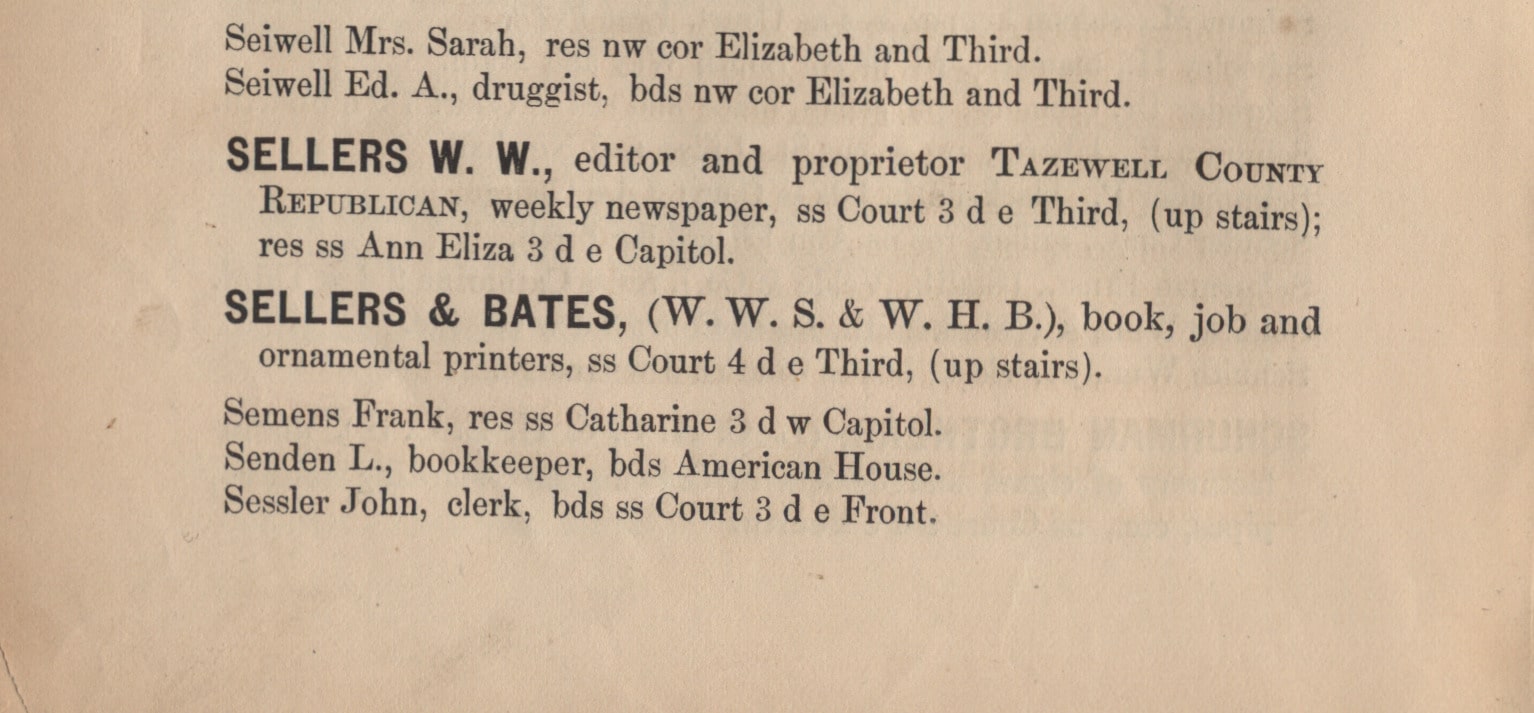
Sellers briefly appears in Charles C. Chapman’s 1879 “History of Tazewell County,” p.723, in Chapman’s account of Tazewell County’s early newspapers. One of them was the Tazewell County Republican, of which Chapman writes, “. . . Wm. W. Sellers got a hold of it, in 1863 or ’64. He made it a red-hot Republican organ and one of the best papers published in the Northwest. He was a shrewd able writer and could turn the English language into a two-edge sword when in a wordy conflict with an opponent. He conducted it until his death, which occurred Dec. 15, 1872. It was then conducted by his administrators for a short time, when Jacob R. Riblett and Wm. H. Bates purchased it.”

The reference to Sellers’ death in 1872 explains why Sellers’ name dropped from the title of subsequent editions of the Pekin City Directory. The business partnership of Sellers & Bates was ended by Sellers’ untimely death, after which Bates continued to publish the directories alone.
The “Atlas Map of Tazewell County, Illinois” was published about 1873. The atlas includes several lengthy biographies of the “Old Settlers of Tazewell County,” all of them laden with fulsome praise of their subjects. On page 43 is a biography of Sellers that reads more like a funeral eulogy than a proper biography, but which nevertheless records all of the highlights of his life.
Sellers, the biography says, “was born May 19, 1833, in Mercersburg, Franklin county, Pennsylvania. He was the youngest of a family of six children of Michael and Phoebe (Walker) Sellers. He is descended from one of the old and prominent families of eastern Pennsylvania. His early culture was received in the schools of his native town. His rare and eminent natural qualities, coupled with his active and studious mind, led him on to that success which, as a public man and journalist, he acquired in his after career.”
Sellers went into journalism in the early 1850s as assistant editor of the Chambersburg Repository, but at age 22 he moved to McConnellsville, Pa., and became the owner and publisher of the Fulton Republican. “He was married July 8, 1856, in Indianola, Iowa, to Miss Lide Smith, with whom he first became acquainted in his native town.” They had five children. After their marriage, they returned to McConnellsville, where Sellers continued to publish the Fulton Republican. He also was elected to the Pennsylvania legislature.
Sellers settled in Pekin in November 1863 and soon after purchased the Tazewell County Republican. “The county was largely democratic at this time, but owing to the herculean labors of this gifted journalist, we may largely account for the political revolution of 1872, when we find, for the first time in its political record, that the county was republican,” his biography says.
Sellers was elected mayor of Pekin in 1865, but he resigned in the fall of 1866 after winning election as a representative in the Illinois General Assembly. Besides the elective offices he held, the biography states that Sellers also “was appointed, by President Grant, postmaster of the city of Pekin, which position he held until his death, which occurred at his residence on the 15th of December, 1872. His amiable and accomplished wife is still continuing the paper which was so ably conducted by her husband.”
Somewhat remarkably for that era, after Sellers’ death, President Grant appointed Sellers’ widow as “postmistress of Pekin.” “The appointment meets the approbation of the citizens of Pekin, and it is well conducted through her management,” the biography says.
In tribute to Sellers’ journalism, his biography comments, “It is a well-established fact in the minds of our intelligent citizens, that the press is the most potent agency for good or evil in Christendom. The same is true in state or municipal affairs. Every city owes its progress, in a great measure, to its press. Newspapers are now becoming the vehicle of thought, as well as the means of heralding the virtues of every people and the beauties of every locality to the world. In respect to these facts, Pekin was indeed benefited by the short but incessant labors of William W. Sellers.”
